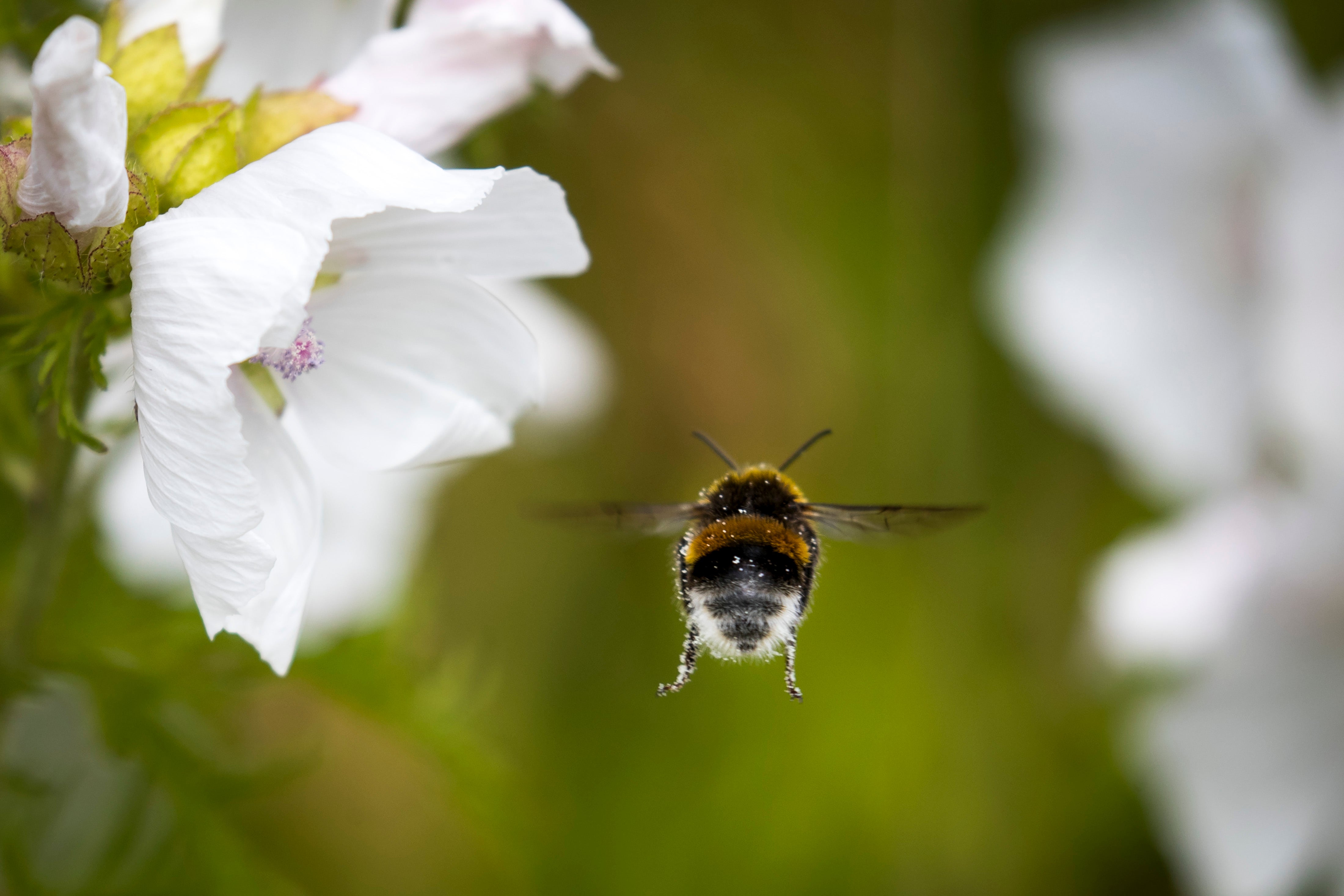Caffeine may help bees pollinate, study with robotic flowers shows
The bees were trained using a mixture containing caffeine, sugar and the scent of a target flower

A coffee in the morning helps many humans face the day thanks to the caffeine, and it would appear that bumblebees respond similarly to caffeine, a study has found.
With climate change having an impact on wild pollinator populations, including bees, moths, wasps, butterflies, beetles and birds, some fruit growers are relying on “managed pollinators” to pollinate their crops.
So-called “managed pollinators” can include commercial bumblebee colonies which are not as efficient as farmers would like. This is because some do not leave the nest, while others get distracted by other nearby flora.
A study was designed to see whether or not bees could be primed to target particular odours. Researchers did this by creating a special blend combining caffeine, sugar and the specific “target flower” smell and wafting it through the nest.
The “target flower” scent was the smell of the particular flower that researchers wanted the bees to find, which was in this case the scent of the strawberry flower.
Bees were then let loose in a lab where robotic flowers were covered in either the target odour, or the scent of linalool, which is not present in strawberry flowers.
Dr Sarah Arnold of the natural resources institute at the University of Greenwich said: "When you give bees caffeine, they don’t do anything like fly in loops, but do seem to be more motivated and more efficient.
"We wanted to see if providing caffeine would help their brains create a positive association between a certain flower odor and a sugar reward."
It appeared that bees that had been trained using the caffeine mixture were much more interested in the target flowers, which smelt of strawberries, than the distractor flowers, the authors said.
The authors added that the experiment did not seem to be toxic as there was no impact on the lifespan of the bees.
The study was published in the journal Current Biology and was funded by the Biotechnology and Biological Sciences Research Council, Biobest (who supply bumblebees to fruit farms) and Berry Gardens (a production and marketing group for fruit growers).
The findings of the study could have big implications for agriculture and may be a “win-win solution for everybody”, suggested Dr Arnold. She did note however, that a successful field-scale trial would be needed before this approach could be used in real life situations, as the bees would also have to deal with a number of other distractions, including changing weather conditions and having to fly further.
Additional reporting by SWNS
Subscribe to Independent Premium to bookmark this article
Want to bookmark your favourite articles and stories to read or reference later? Start your Independent Premium subscription today.

Join our commenting forum
Join thought-provoking conversations, follow other Independent readers and see their replies